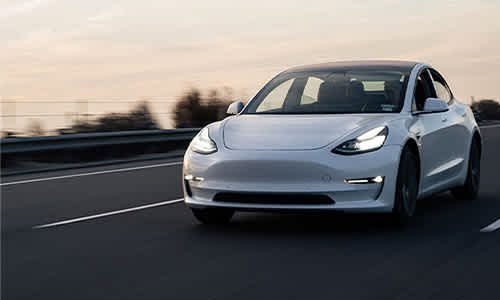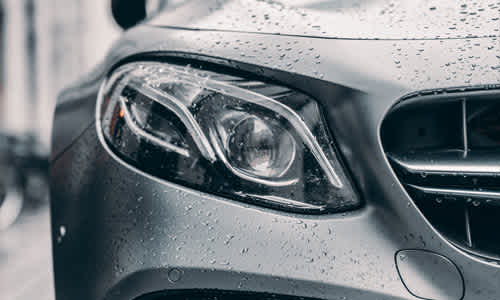Secured vs unsecured car loans: Which is right for you?

If you want a new set of wheels but need some help with finance, you've likely thought about getting a car loan. And if you've looked into car loans, you may have noticed there are different options: secured or unsecured.
The option you choose will depend on a few factors, like how much you can borrow, what loan terms you're comfortable with and the type of car you want to buy.
But before you make a choice, let's take a look at secured and unsecured loans, and what they really mean.
What's a secured loan?
Lending money is always risky for financial institutions, because they can never be certain that borrowers will repay the funds.
Secured loans are a lender's way of ensuring that if borrowers are unable to meet their repayments, they'll have greater likelihood of recouping the money they have lent.
These kinds of loans use an asset - usually the asset you're purchasing - as collateral against the loan. With car loans, that asset is the car you're buying. In the event you don't meet your repayments on the loan, the bank can repossess and sell the car in order to recoup its funds.
It's just like a home loan. If you can't meet your mortgage repayments, the bank may seize your property and sell it to recover the loan amount, because your house is the security for the loan.
Wait - what's collateral?
Collateral is the financial term for the asset borrowers agree to give to their lender if they can't meet their loan repayments.
Who are secured car loans right for?
Secured loans will typically allow you to borrow higher amounts, which means if you're after a pricier car, this may be the option for you.
Because there's less risk involved for the lender with a secured loan, they tend to have lower interest rates, which means you'll often pay a lower total loan cost. And because you're using an asset to secure the loan, lenders may be a little more lenient with borrowers who have lower credit scores, or are simply finding it tough to get approved.
What's more, the interest rate tends to be fixed, which means if you like to stick to budgets and know exactly what payments are coming up when, then they might be a good option for you.
What's an unsecured loan?
If a secured loan requires an asset as security for funds, then an unsecured loan - you guessed it - doesn't.
This means if you opt for an unsecured car loan, and you can't meet your repayments, the lender can't just seize your car to recoup the funds. Instead, they may need to take you to court to get their money back.
Because there's no collateral involved, unsecured loans generally carry more risk than secured loans. As a result, you may be charged higher interest, more fees, and you may be less likely to be approved for finance if your credit history isn't squeaky clean.
Who are unsecured car loans right for?
If you're after a smaller loan or a shorter term, an unsecured loan may be right for you. And, you won't need to worry about your car being repossessed if you miss a payment.
However, you will need to have a good credit history in order to qualify, so bear that in mind when making an application.
Secured vs unsecured car loans: costs
Just like any loan, secured and unsecured car loans come with costs, like interest rates and loan fees. And these costs can vary hugely: in fact, interest rates on car loans can range from around 3.99% to 29.99%.
Because secured car loans are lower risk for lenders, they tend to carry lower interest rates and lower fees. And it's vice versa for unsecured car loans.
Secured car loans
For a $20,000 secured loan for a new car over 5 years, the average interest rate is around 6.72% per annum, and 7.29% on a secured used car loan, according to Canstar.
The average application fee is around $236 for a secured loan on a new car, and $240 for a secured loan on a used car.
Unsecured car loans
As mentioned above, unsecured car loans tend to come with higher interest rates. The average interest rate is around 10.50%, according to Savings.com.au.
Application fees can be as high as $995.
How much could you save with a secured car loan?

Depending on which lender you choose and what interest rate you're offered, a secured loan can potentially save you thousands. (Note that interest rates and resulting savings will vary between lenders.)
This doesn't take into account your personal financial situation and your credit history, which may impact the interest rate you're offered.
Which car loan is best for you?
Ultimately, the car loan that's right for you will depend on your financial situation. But let's recap the characteristics of each loan.
Secured car loans:
- Require your car to be offered as security for the loan, which means if you miss a repayment the bank may repossess and sell your car
- Are less risky for lenders, so you may have lower interest rates and lower fees
- Generally have higher loan amounts, for longer loan terms
- Can be easier to qualify for if you have a not-so-great credit history
- Offer fixed interest rates, so you can have certainty of repayments.
Unsecured car loans:
- Don't require your car as security for the loan, which means your car can't be repossessed if you miss a repayment
- Are higher risk for lenders, so may have higher interest rates and higher fees
- Generally have lower loan amounts, for shorter loan terms
- Are tougher to qualify for if you have a not-so-great credit history
- Offer fixed or variable interest rates.
There's no right or wrong answer, so whichever loan your financial situation aligns with best will be the option that's right for you.
You may also like
News, tips and offers straight to your inbox.


